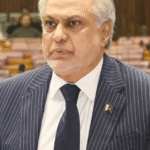In a significant move that has reverberated across the sports world, Norwegian footballer Ole Saeter recently turned down a lucrative offer from Israeli football club Maccabi Haifa, reportedly valued at $910,000. Saeter’s decision is not just about financial considerations; it embodies a moral stance that reflects broader social and political issues. His choice is particularly poignant given his eligibility to represent Pakistan through his maternal ancestry. This incident raises critical questions about the intersection of sports, politics, and personal ethics.
Background on Ole Saeter
Ole Saeter is a rising star in the football world, known for his impressive skills and potential on the field. His connection to Pakistan comes from his maternal lineage, allowing him the unique opportunity to represent a country that has faced its share of challenges in the world of football.
Although he has been relatively quiet on the international stage, his ties to Pakistan have sparked interest among fans and stakeholders who hope to see him contribute to the national team. Saeter’s previous social media posts, which feature him wearing the Pakistan football team jersey, showcase his willingness to engage with his roots and promote the sport in Pakistan.
The Offer from Maccabi Haifa
Maccabi Haifa, one of the most prominent football clubs in Israel, extended an attractive contract offer to Saeter. The proposed salary of $910,000 (approximately PKR 264.3 million) would have been a considerable financial boost for the player. Such offers are typically difficult for athletes to decline, especially in a sport where financial security can be elusive.
However, for Saeter, the financial lure paled in comparison to his moral convictions. In interviews, he has articulated that no amount of money could sway him to play for a club he associates with human rights violations. His commitment to his principles stands out in an age when many athletes face immense pressure to prioritize financial gain over personal beliefs.
The Moral Dimension
Saeter’s rejection of the Maccabi Haifa offer stems from his concerns about Israel’s policies and actions, particularly in relation to violence against children and vulnerable populations. He expressed this sentiment clearly, stating, “Even if I were offered $500 million, I would not join an Israeli club.” His strong stance highlights the ethical dilemmas that athletes often encounter when considering lucrative opportunities that conflict with their values.
This moral dimension is not new in the realm of sports. Many athletes have used their platforms to raise awareness about social justice issues, often at great personal and professional risk. Saeter’s choice to reject a high-paying contract reflects a commitment to these values, emphasizing that personal integrity should take precedence over financial incentives.
The Human Rights Context
The backdrop of Saeter’s decision is the ongoing conflict in Israel and Palestine, which has drawn international condemnation and calls for accountability regarding human rights violations. Various organizations, including the United Nations, have highlighted the impact of these policies on children and families in the region. By choosing to decline the offer, Saeter aligns himself with a growing movement of athletes who seek to shed light on these critical issues.
Athletes, due to their visibility and influence, can serve as powerful advocates for change. Saeter’s decision can encourage discussions about human rights and the responsibilities of athletes when considering their career choices. His actions serve as a reminder that sports do not exist in a vacuum; they are intertwined with the socio-political realities of our time.
Reactions and Support
The football community has responded to Saeter’s decision with a mix of admiration and support. Many fans and fellow athletes have lauded him for his integrity and commitment to his principles. Social media platforms have been flooded with discussions about the implications of his choice. Supporters have praised him for prioritizing human rights over financial gain, while critics of Israel’s policies have used this opportunity to draw attention to ongoing humanitarian issues in the region.
This outpouring of support highlights a growing awareness among fans about the ethical responsibilities of athletes. In an era where sports and politics increasingly intersect, Saeter’s decision serves as a rallying point for discussions around athlete activism and social responsibility.
The Impact on Pakistani Football
Saeter’s potential representation of Pakistan could have brought significant attention to the country’s football scene. His talents could have elevated the national team’s profile and performance on the international stage. However, his decision to reject the offer presents an opportunity for local players to step up and shine.
The Pakistani football community has long sought international recognition and support. Saeter’s connection to the team could have inspired young athletes in Pakistan. Nevertheless, his refusal to play for Maccabi Haifa emphasizes the importance of prioritizing values over opportunities, even if it means stepping back from a potentially lucrative career move.
The Current State of Football in Pakistan
Pakistan’s football landscape has faced numerous challenges, including a lack of infrastructure, funding, and support for grassroots initiatives. Despite these obstacles, the passion for football remains strong among fans and aspiring players. Saeter’s rejection of the offer may serve as a wake-up call to stakeholders in Pakistan to invest more in developing local talent and creating opportunities for young athletes.
Moreover, Saeter’s commitment to his values can serve as a source of inspiration for young players in Pakistan. It reinforces the notion that integrity and principles should guide one’s choices, even in a competitive environment like professional sports.
Athlete Activism: A Growing Movement
The phenomenon of athlete activism has gained significant traction in recent years. From Colin Kaepernick’s kneeling during the national anthem to LeBron James’s advocacy for racial equality, athletes are increasingly using their platforms to address social and political issues. Saeter’s decision fits neatly into this larger narrative of athlete activism, demonstrating how personal beliefs can influence professional decisions.
In this context, Saeter’s stance also highlights the responsibility that comes with visibility. Athletes possess a unique ability to reach wide audiences, making their voices crucial in advocating for change. By prioritizing his principles, Saeter sets an example for other athletes, encouraging them to reflect on their values when faced with similar dilemmas.
The Broader Implications
Saeter’s rejection of the Maccabi Haifa offer raises broader questions about the role of sports in society. Should athletes be expected to engage with political issues, or should they focus solely on their performance? This debate continues to unfold as more athletes take public stances on various issues, challenging traditional notions of professionalism in sports.
Moreover, Saeter’s choice highlights the need for greater awareness of human rights issues in the realm of sports. Fans, clubs, and governing bodies must consider the implications of their associations and partnerships. The sports world cannot be divorced from the socio-political realities of our time; ignoring these issues risks complicity in systemic injustices.
Conclusion
Norwegian footballer Ole Saeter’s decision to decline a significant offer from Israeli club Maccabi Haifa is a powerful testament to the complex interplay between sports, ethics, and identity. By prioritizing his moral convictions over financial gain, Saeter has emerged as a role model for integrity and activism in the sporting world.
As discussions surrounding his decision continue, it is essential to acknowledge the broader implications for both the football community and the ongoing discourse surrounding human rights. Saeter’s stance not only reflects his personal values but also encourages other athletes to consider the impact of their choices beyond the realm of sports.
In an era where the intersection of sports and politics is increasingly prominent, Saeter’s decision serves as a compelling reminder that athletes have the power to influence change. As the world watches, his actions can inspire others to take a stand for what they believe in, paving the way for a more conscious and responsible approach to sports.







